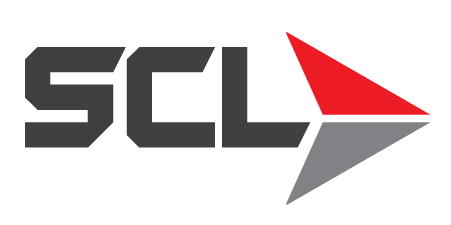PC-11 Price Increase – How It Will Effect Your Fleet

PC-11 Price Increase
Every 8 years the American Petroleum Institute (API) releases a new batch of oil formulations for heavy duty truck fleets that are created to accommodate changing emissions and fuel economy regulations and PC-11 is the next formulation about to be put through a formulation change. As a result, oil formulations will continue to change and business owners will likely notice a corresponding increase in the price of certain products. December 1, 2016 marked the introduction of 2 new categories of oil standards known as API CK-4 and FA-4 as well a new heavy duty oil product – PC-11 (PC-11A and PC-11B).
Considered the next generation of heavy duty engine oils, PC-11A and PC11-B were designed to enhance engine protection while simultaneously optimizing fuel economy. The change in formulation is being driven largely by increased emission regulations, specifically for GHG carbon dioxide, whereas standards were previously focused on decreasing nitrogen oxides and particulate matter. The engines of the future are being designed to run hotter and longer than ever before and will require oil formulations that can withstand elevated engine temperatures over longer durations of time. The new formulation of PC-11 is a collaborative effort between engine designers, consumers, test lab operators and oil manufacturers that will positively impact the overall functionality and efficiency of heavy duty trucks by decreasing emissions and optimizing fuel economy. As a business owner or fleet manager, it’s important for you to understand what you can expect in terms of a price increase as the industry transitions to these two new PC-11 formulations.
PC-11A and PC-11B
Licensed on December 1st, 2016 and set to accommodate the 2017 model year, PC-11A and PC-11B are heavy duty oil products designed for both on and off-highway applications. PC stands for Proposed Category 1 and is in the developmental phase of becoming a new API diesel category. PC-11 was designed with the input of the American Section of the International Association for Testing Materials (ASTM) and incorporates OEM specifications to address GHG emissions, concerns surrounding global warming, environmental considerations, the depletion of natural resources and the security of our nation’s energy supply. PC-11A is backward compatible and was designed to protect both new and older engine models while PC-11B will cater to 2017 engines and newer. These newer engines are being specifically designed to accommodate a lower viscosity grade of oil for optimal performance in fuel economy and engine protection. For convenience, both formulations will be available in various lubricant grades that consumers and fleet operators currently use on a regular basis.
The importance of education
Understanding the application of these 2 lower viscosity oil subcategories is essential, as well as their compatibility with the specific age and design of a truck’s engine. Knowing an engine’s compatibility with PC-11 will assist customers in purchasing the optimal lubricant product for their fleet, ensuring a higher level of quality that will then translate to cost savings through engine durability and longevity. With oil categories becoming increasingly fragmented, distributors and customers may experience confusion when categorizing the spectrum of oil grades and their associated applications, making education around PC-11A and PC-11B all the more important.
The benefits of PC-11A and PC-11B
PC-11 delivers an upgrade in overall engine performance with world class wear protection, a 20-30% improvement in oxidation stability over API CJ-4 oils, shear stability, control versus aeration, lower piston deposits, improved fuel economy, extended drain intervals and an enhanced ability for engines to operate at higher temperatures for longer durations of time. PC-11B offers a lower viscosity formulation specifically designed for newer engine models, and both the new generation PC-11A and PC-11B oils will assist your fleet in obtaining better fuel economy and overall engine protection. These preventative measures will allow OEM’s to successfully weather evolving regulations for the more fuel efficient engines of the future and off-road OEM’s will benefit from PC-11 in Tier IV engines with improved oil oxidation and extended drain intervals.
“As regulations within the industry continue to change, lubricant formulations will evolve in tandem, and the future of PC-11 will focus on meeting new GHG regulations to achieve 2020-2030 fuel economy and engine performance projections.”
The future of PC-11
As regulations within the industry continue to change, lubricant formulations will evolve in tandem, and the future of PC-11 will focus on meeting new GHG regulations to achieve 2020-2030 fuel economy and engine performance projections. According to the report, Chevron Lubricants PC-11 Overview for Customers, on-highway oil grades will continue to change with the majority of fleets transitioning to SAE 10W-30 by 2022. A significant growth in 10W-30 is also projected with PC-11B SAE 10W-30 being the up-and-coming grade to evolve and light-duty diesel pickups will make a slow transition to lower viscosity oils. PC-11A and PC-11B will comply with all API-CJ4 specifications that are important in the reduction of NOx emissions, GHG and particulate matter. They will limit sulphur, phosphorous and sulfated ash, all of which will greatly enhance the protection of your fleet’s emission control systems.
Contact an SCL Consultant today
In a wide range of industrial sectors, if there’s metal touching metal, oil is involved. At SCL, we’re here to protect and optimize the machines that keep our country moving and we pride ourselves on providing superior logistics and solutions, extensive product and industry knowledge and total performance satisfaction for our customers. As oil formulations continue to evolve to reflect increased emission and fuel economy regulations for both on and off-highway engines, it’s important to understand how these changes will affect your fleet. For more information on PC-11 and how its change in formulation will impact your bottom line, contact an SCL consultant today.
